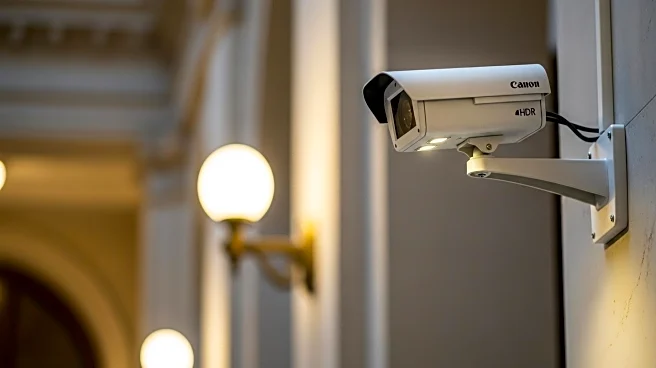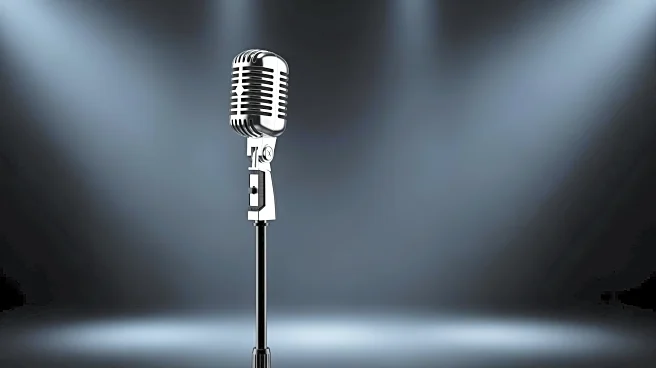What's Happening?
Colin Smyth, a Member of the Scottish Parliament (MSP), has been accused of placing a secret camera in a toilet at the Scottish Parliament in Edinburgh. This accusation comes alongside a separate charge of possessing indecent images of children, for which Smyth was suspended by the Labour party earlier this month. Holyrood's corporate body has revoked Smyth's building access during the ongoing criminal investigation. He is expected to appear at Dumfries Sheriff Court at a later date concerning the child images charge. The camera allegations have been confirmed by several senior political figures, and Smyth is facing further charges by police. Smyth has held several party frontbench roles and was previously Scottish Labour's general secretary. A Scottish Labour Party spokesperson stated that swift action was taken upon learning of these serious allegations, and Smyth is now an independent MSP.
Why It's Important?
The allegations against Colin Smyth are significant as they involve serious breaches of privacy and criminal conduct within a governmental institution. The charges could have implications for the integrity and security protocols within the Scottish Parliament. The situation also highlights the importance of safeguarding public spaces and maintaining trust in elected officials. The Labour party's swift action in suspending Smyth underscores the gravity of the allegations and the potential impact on the party's reputation. The ongoing investigation and legal proceedings may affect Smyth's political career and could lead to broader discussions on privacy and security measures in government buildings.
What's Next?
As the investigation continues, Smyth is expected to appear in court regarding the charges. The Scottish Parliament may review its security protocols to prevent similar incidents in the future. The Labour party and other political entities will likely monitor the situation closely, considering the potential impact on public trust and political dynamics. Smyth's ability to contribute to parliamentary debates and vote remotely may be scrutinized, and further legal developments could arise as the investigation progresses.










